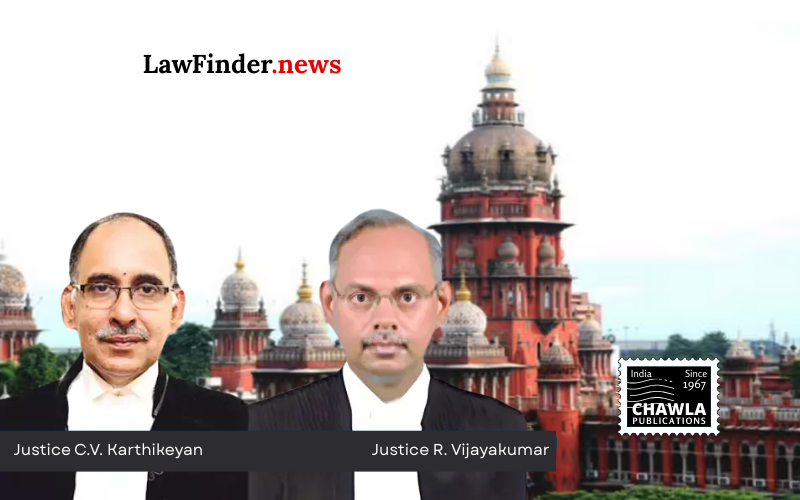Court Orders Circulars and Training to Ensure Timely Recording of Child Victim Testimonies
In a landmark decision, the Madurai Bench of the Madras High Court has issued directives to address widespread non-compliance with the mandatory provisions of the Protection of Children from Sexual Offences (POCSO) Act, 2012. The case, titled "Uma Maheshwari v. Principal Secretary to Government," highlighted a systemic failure to record the evidence of child victims within the 30-day period stipulated by Section 35 of the Act. The court emphasized the importance of this provision and expressed concern over its frequent neglect in districts under its jurisdiction.
The court's decision came during the hearing of a Habeas Corpus Petition challenging the detention of Sivakumar, deemed a 'Sexual Offender' under Tamil Nadu Act 14 of 1982. While dismissing the petition, the court's focus shifted to the alarming delays in POCSO case proceedings, particularly regarding the examination of child victims.
Justice C.V. Karthikeyan and Justice R. Vijayakumar underscored that failure to comply with Section 35 compromises the integrity of the judicial process. The evidence recorded beyond the stipulated period retains its validity, provided the special courts document compelling reasons for the delay. However, the judges stressed that such reasons must be beyond the control of the courts.
To rectify this issue, the High Court directed the issuance of a circular to remind Presiding Officers of Special Courts about the statutory requirements under the POCSO Act. The court also called for the reissuance of a previous circular outlining best practices for handling POCSO cases, which appears to have been largely ignored.
Furthermore, the Tamil Nadu State Judicial Academy has been tasked with conducting special training sessions to sensitize Presiding Officers to the importance of timely evidence recording and the prompt cognizance of charge sheets.
The judgment referenced several Supreme Court rulings, including "Alakh Alok Srivastava v. Union of India" and "In Re: Alarming Rise in the Number of Reported Child Rape Incidents," which reinforce the urgency of adhering to timelines stipulated by the POCSO Act. These directives aim to prevent unnecessary delays in trials and ensure that child victims receive justice promptly.
The decision also highlighted statistical data from the Inspector General of Police, revealing over 343 pending cases in the South Zone and 52 in the Central Zone, where compliance with Section 35 was found lacking.
The court's proactive measures seek to enhance the efficiency and sensitivity of judicial proceedings in POCSO cases, ensuring that the legal system protects and prioritizes the welfare of child victims.
Bottom Line:
Non-compliance with the mandatory requirement under Section 35 of the POCSO Act, 2012, to record the evidence of the child victim within 30 days from the date of cognizance of the charge sheet, is observed in several cases - The High Court directs issuance of a circular reminding Presiding Officers of the Special Courts about compliance with this provision, and calls for special training for sensitization.
Statutory provision(s): Section 35 of the POCSO Act, 2012




